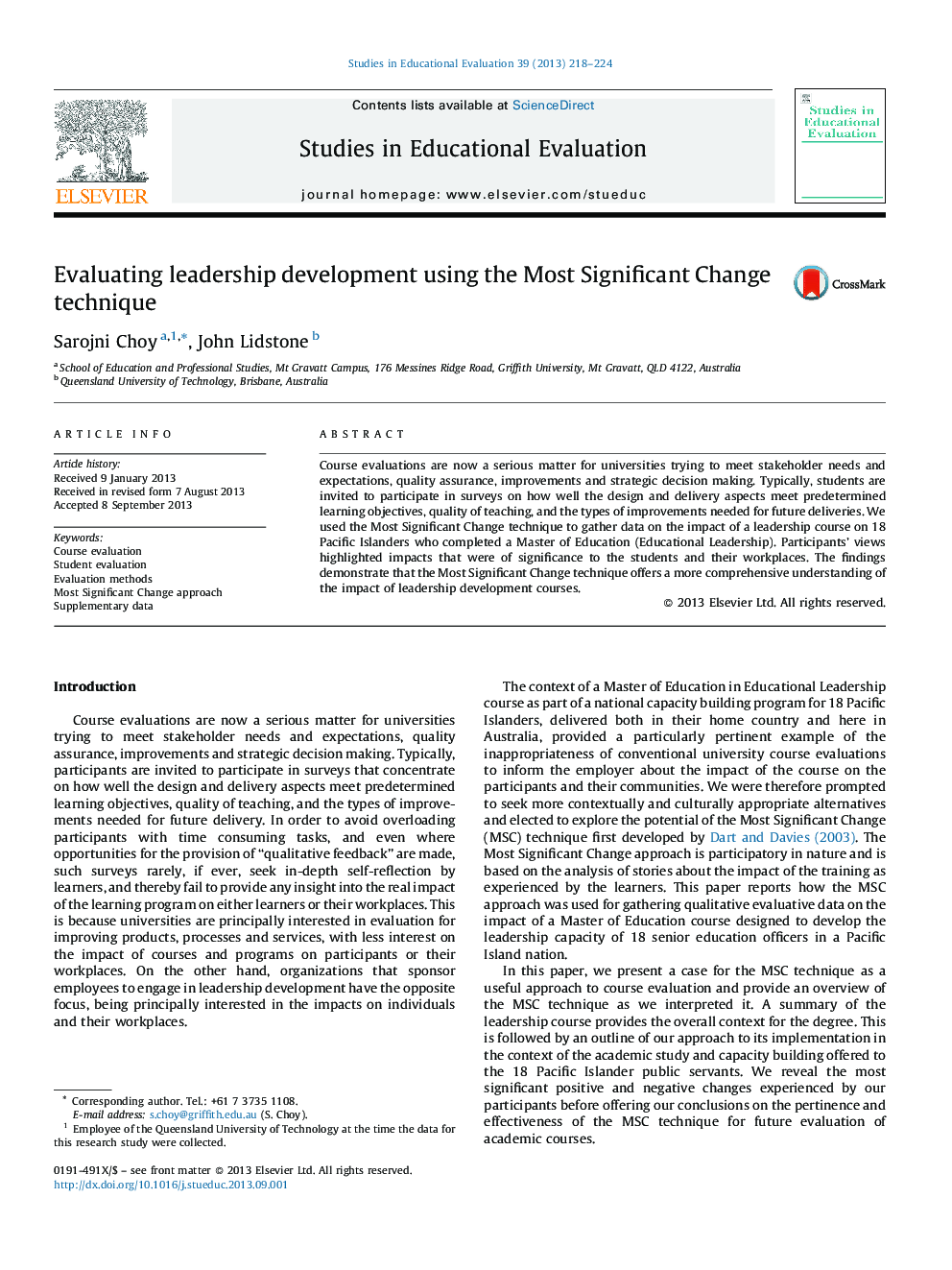| Article ID | Journal | Published Year | Pages | File Type |
|---|---|---|---|---|
| 372674 | Studies in Educational Evaluation | 2013 | 7 Pages |
•The Most Significant Change technique provided contextually and culturally appropriate data on leadership development.•The findings indicate impacts of learning that are most significant to learners, and their workplaces and communities.•The MSC technique is a useful tool for more comprehensive evaluation of capacity building courses.•Specific items reflected in the findings here could be added to extend the scope of traditional course evaluation surveys.
Course evaluations are now a serious matter for universities trying to meet stakeholder needs and expectations, quality assurance, improvements and strategic decision making. Typically, students are invited to participate in surveys on how well the design and delivery aspects meet predetermined learning objectives, quality of teaching, and the types of improvements needed for future deliveries. We used the Most Significant Change technique to gather data on the impact of a leadership course on 18 Pacific Islanders who completed a Master of Education (Educational Leadership). Participants’ views highlighted impacts that were of significance to the students and their workplaces. The findings demonstrate that the Most Significant Change technique offers a more comprehensive understanding of the impact of leadership development courses.
